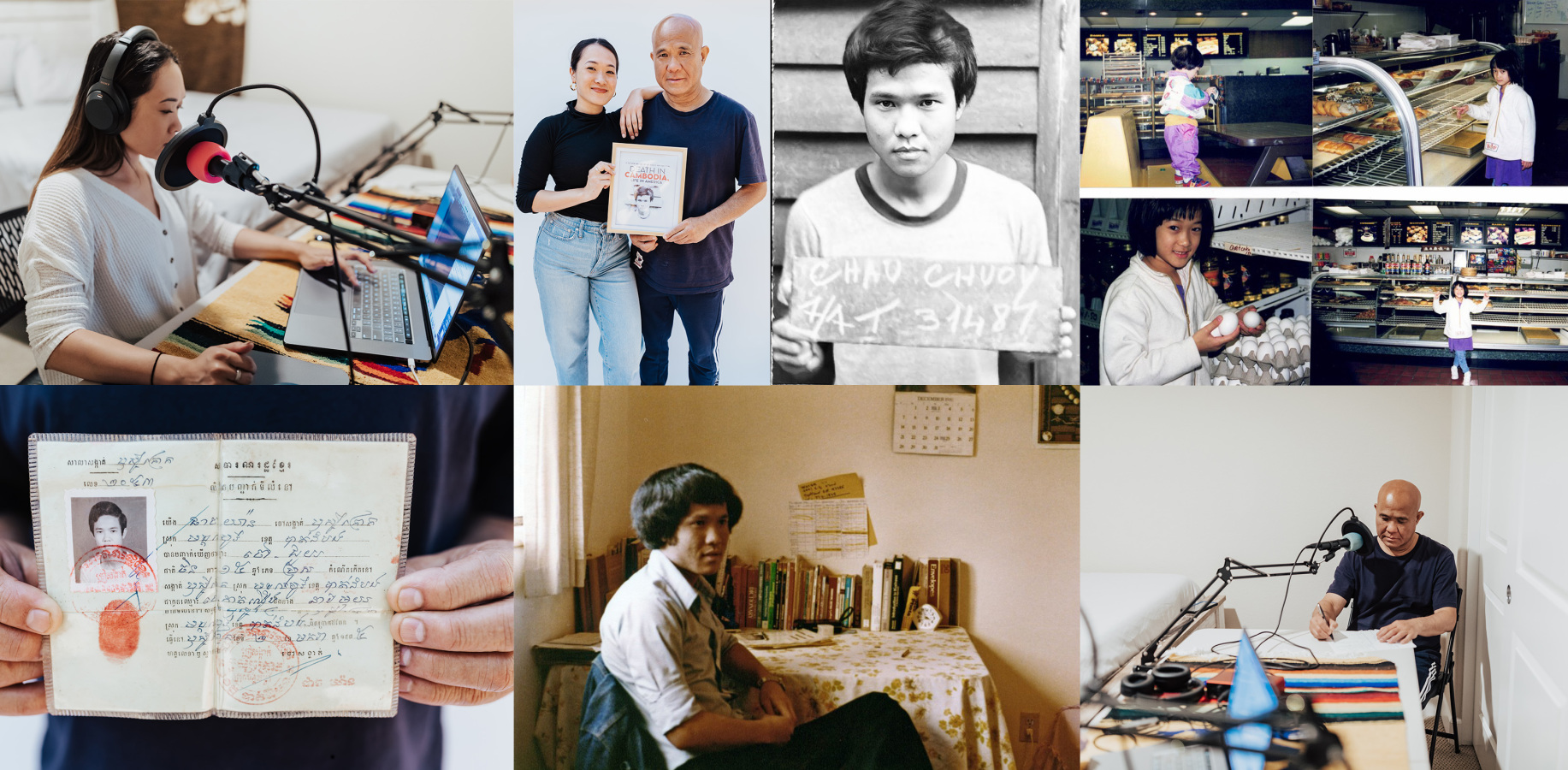About this collection
In 2020, Dorothy Chow began recording interviews with her father, Robert Chau, about his experience fleeing from Cambodia and the Khmer Rouge in the 1970's. Those interviews became the Death in Cambodia, Life in America podcast. They also became the largest audio collection about the Cambodian genocide to date. Over the course of twenty seven episodes, Robert recounted in vivid detail his memories of the rise of the Khmer Rouge, living under their surveillance, working in forced labor camps, and finally his escape to the Thailand border. It was the first time Robert had revisited this part of his story and the first time Dorothy had heard about her father's experience and the history surrounding it. Dorothy questioned why she had never heard about this history before in school or popular culture. That is what compelled her to record and publish her conversations with her father- she wanted to be sure that the story is told and told by the survivors themselves.
Dorothy has continued to interview others in the Cambodian refugee community as well as journalists, artists, and historians whose work has addressed the Cambodian Genocide. She feels passionate about connecting the Cambodian refugee community with resources to help them process their trauma, and helping the next generation understand what their parents went through.
In 2023, Dorothy decided to donate materials to Pepperdine Libraries to preserve and provide access to this incredible collection into the future. The collection includes raw and edited podcast files, music and sheet music created for the podcast by Dorothy's brother, transcripts of podcast episodes, and related images and promotional materials. The collection also includes two folders of physical notes taken by Dorothy and her father during the recording of the podcast as well as the transcript of a speech Dorothy gave at Bryn Mawr.
About this collection
In 2020, Dorothy Chow began recording interviews with her father, Robert Chau, about his experience fleeing from Cambodia and the Khmer Rouge in the 1970's. Those interviews became the Death in Cambodia, Life in America podcast. They also became the largest audio collection about the Cambodian genocide to date. Over the course of twenty seven episodes, Robert recounted in vivid detail his memories of the rise of the Khmer Rouge, living under their surveillance, working in forced labor camps, and finally his escape to the Thailand border. It was the first time Robert had revisited this part of his story and the first time Dorothy had heard about her father's experience and the history surrounding it. Dorothy questioned why she had never heard about this history before in school or popular culture. That is what compelled her to record and publish her conversations with her father- she wanted to be sure that the story is told and told by the survivors themselves.
Dorothy has continued to interview others in the Cambodian refugee community as well as journalists, artists, and historians whose work has addressed the Cambodian Genocide. She feels passionate about connecting the Cambodian refugee community with resources to help them process their trauma, and helping the next generation understand what their parents went through.
In 2023, Dorothy decided to donate materials to Pepperdine Libraries to preserve and provide access to this incredible collection into the future. The collection includes raw and edited podcast files, music and sheet music created for the podcast by Dorothy's brother, transcripts of podcast episodes, and related images and promotional materials. The collection also includes two folders of physical notes taken by Dorothy and her father during the recording of the podcast as well as the transcript of a speech Dorothy gave at Bryn Mawr.

